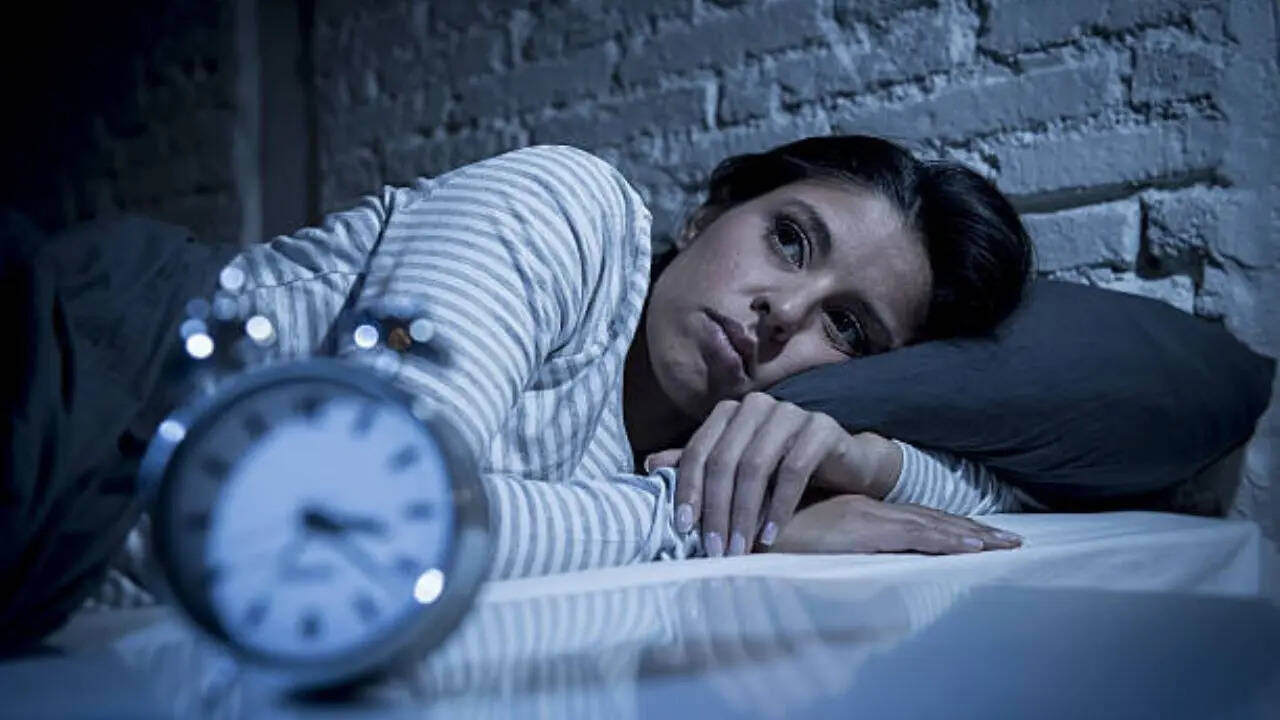
News
October 21, 2025
Insomnia Warning: Experts Call It a Mental Health Emergency; Here’s How You Can Heal
Experts warn that insomnia is not just a sleep issue but a growing mental health emergency affecting millions. Chronic sleeplessness increases the risk of anxiety, depression, and heart problems. Experts recommend regular workouts that include yoga, massage therapy, meditation, and seeking professional help to restore healthy sleep patterns.
**Insomnia Warning: Experts Call It a Mental Health Emergency; Here’s How You Can Heal**
Insomnia, that frustrating inability to fall or stay asleep, is more than just a nightly nuisance. Experts are now sounding the alarm, classifying chronic sleeplessness as a significant and growing mental health emergency affecting millions worldwide. The consequences of persistent insomnia extend far beyond daytime fatigue, posing a serious threat to overall well-being.
According to leading health professionals, prolonged lack of sleep dramatically increases the risk of developing or exacerbating mental health conditions like anxiety and depression. The intricate relationship between sleep and mental health means that one directly impacts the other. Insufficient sleep disrupts the brain's natural processes, leading to mood swings, difficulty concentrating, and an increased vulnerability to negative thoughts and emotions.
But the dangers of insomnia don't stop there. Studies have linked chronic sleep deprivation to a higher risk of developing serious physical health problems, including heart disease, high blood pressure, and weakened immune function. This underscores the importance of addressing insomnia as a critical health issue, rather than simply dismissing it as a minor inconvenience.
So, what can you do to combat insomnia and reclaim your sleep? Experts emphasize the importance of a holistic approach that combines lifestyle changes with professional guidance when needed. Regular physical activity, particularly workouts that incorporate yoga, can be incredibly beneficial. Yoga's focus on mindful movement and breathing helps to calm the nervous system and reduce stress, promoting relaxation and better sleep.
Massage therapy is another recommended strategy. By easing muscle tension and promoting relaxation, massage can help prepare the body for restful sleep. Similarly, meditation, even just a few minutes each day, can quiet the mind and reduce the racing thoughts that often keep people awake at night.
However, experts stress that self-help strategies may not be enough for everyone. If insomnia persists despite these efforts, it's crucial to seek professional help from a doctor or sleep specialist. They can accurately diagnose the underlying causes of your sleep problems and recommend appropriate treatments, which may include cognitive behavioral therapy for insomnia (CBT-I) or, in some cases, medication.
Taking proactive steps to address insomnia is an investment in your mental and physical health. By prioritizing sleep and adopting healthy sleep habits, you can significantly reduce your risk of developing serious health problems and improve your overall quality of life. Don't underestimate the power of a good night's sleep – it's essential for a healthy mind and body.
Insomnia, that frustrating inability to fall or stay asleep, is more than just a nightly nuisance. Experts are now sounding the alarm, classifying chronic sleeplessness as a significant and growing mental health emergency affecting millions worldwide. The consequences of persistent insomnia extend far beyond daytime fatigue, posing a serious threat to overall well-being.
According to leading health professionals, prolonged lack of sleep dramatically increases the risk of developing or exacerbating mental health conditions like anxiety and depression. The intricate relationship between sleep and mental health means that one directly impacts the other. Insufficient sleep disrupts the brain's natural processes, leading to mood swings, difficulty concentrating, and an increased vulnerability to negative thoughts and emotions.
But the dangers of insomnia don't stop there. Studies have linked chronic sleep deprivation to a higher risk of developing serious physical health problems, including heart disease, high blood pressure, and weakened immune function. This underscores the importance of addressing insomnia as a critical health issue, rather than simply dismissing it as a minor inconvenience.
So, what can you do to combat insomnia and reclaim your sleep? Experts emphasize the importance of a holistic approach that combines lifestyle changes with professional guidance when needed. Regular physical activity, particularly workouts that incorporate yoga, can be incredibly beneficial. Yoga's focus on mindful movement and breathing helps to calm the nervous system and reduce stress, promoting relaxation and better sleep.
Massage therapy is another recommended strategy. By easing muscle tension and promoting relaxation, massage can help prepare the body for restful sleep. Similarly, meditation, even just a few minutes each day, can quiet the mind and reduce the racing thoughts that often keep people awake at night.
However, experts stress that self-help strategies may not be enough for everyone. If insomnia persists despite these efforts, it's crucial to seek professional help from a doctor or sleep specialist. They can accurately diagnose the underlying causes of your sleep problems and recommend appropriate treatments, which may include cognitive behavioral therapy for insomnia (CBT-I) or, in some cases, medication.
Taking proactive steps to address insomnia is an investment in your mental and physical health. By prioritizing sleep and adopting healthy sleep habits, you can significantly reduce your risk of developing serious health problems and improve your overall quality of life. Don't underestimate the power of a good night's sleep – it's essential for a healthy mind and body.
Category:
Politics